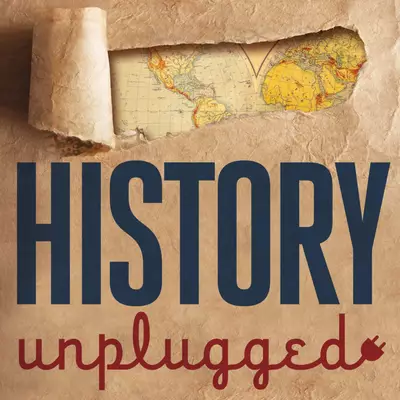Listen on Your Favorite App
The Election of 1800 Was Worse Than 2020 in Every Way Imaginable
November 03, 2020
00:00
35:51
Listen on Your Favorite App
The election was perhaps the nastiest election the country has seen. It had horrible partisan rancor, personal insults, and a politicized media. But we aren't talking about the 2020 election between Donald Trump and Joe Biden. Rather it was the 1000 presidential election, where President John Adams faced his own vice president, Thomas Jefferson.
Adams was decried as a ‘repulsive pedant’ and ‘gross hypocrite’ who ‘behaved neither like a man nor like a woman but instead possessed a hideous hermaphroditical character.’ Jefferson was said to be ‘a mean-spirited, low-lived fellow’ who would create a nation where ‘murder, robbery, rape, adultery and incest will openly be taught and practiced.
Today's guest, Jeffrey Sikkenga, Executive Director of the Ashbrook Center and Professor of Political Science at Ashland University, believes that the election of 1800 has more parallels to today than any other election, but it also can give us hope.
Only 24 years after the Declaration of Independence proclaimed that the Americans were ‘one people,’ it looked like America could be torn apart. The Constitution was only 12 years old and the great unifying figure of George Washington — who was unanimously elected twice as president — had died the year before, in 1799. Even though Washington warned about the dangers of parties in his farewell address, two competing parties had formed — the Federalists of Adams and the Democratic-Republicans of Jefferson. Power had rarely been transferred peacefully between rival parties, and never in the new country.
Sikkenga argues that nevertheless, America surprised the world. Jefferson won, and Adams, despite personal bitterness at what he regarded as Jefferson’s betrayal, followed the Constitution and stepped aside peacefully. For his part, in his inaugural address Jefferson implored his ‘fellow-citizens’ to ‘unite with one heart and one mind’ and ‘restore to social intercourse that harmony and affection without which liberty and even life itself are but dreary things.’
Jefferson wasn’t just mouthing platitudes. He believed that during the election Americans may ‘have called by different names,’ but above all they were ‘brethren of the same principle.’ The truths they shared in the Declaration and Constitution — equality, liberty, consent of the governed, the rule of law — were stronger than the differences of opinion dividing the parties.
Adams was decried as a ‘repulsive pedant’ and ‘gross hypocrite’ who ‘behaved neither like a man nor like a woman but instead possessed a hideous hermaphroditical character.’ Jefferson was said to be ‘a mean-spirited, low-lived fellow’ who would create a nation where ‘murder, robbery, rape, adultery and incest will openly be taught and practiced.
Today's guest, Jeffrey Sikkenga, Executive Director of the Ashbrook Center and Professor of Political Science at Ashland University, believes that the election of 1800 has more parallels to today than any other election, but it also can give us hope.
Only 24 years after the Declaration of Independence proclaimed that the Americans were ‘one people,’ it looked like America could be torn apart. The Constitution was only 12 years old and the great unifying figure of George Washington — who was unanimously elected twice as president — had died the year before, in 1799. Even though Washington warned about the dangers of parties in his farewell address, two competing parties had formed — the Federalists of Adams and the Democratic-Republicans of Jefferson. Power had rarely been transferred peacefully between rival parties, and never in the new country.
Sikkenga argues that nevertheless, America surprised the world. Jefferson won, and Adams, despite personal bitterness at what he regarded as Jefferson’s betrayal, followed the Constitution and stepped aside peacefully. For his part, in his inaugural address Jefferson implored his ‘fellow-citizens’ to ‘unite with one heart and one mind’ and ‘restore to social intercourse that harmony and affection without which liberty and even life itself are but dreary things.’
Jefferson wasn’t just mouthing platitudes. He believed that during the election Americans may ‘have called by different names,’ but above all they were ‘brethren of the same principle.’ The truths they shared in the Declaration and Constitution — equality, liberty, consent of the governed, the rule of law — were stronger than the differences of opinion dividing the parties.
See omnystudio.com/listener for privacy information.
More Episodes
See all episodes
Meet Your Host

Scott Rank is the host of the History Unplugged Podcast and a PhD in history who specialized in the Ottoman Empire and modern Turkey. Before going down the academic route he worked as a journalist in Istanbul. He has written 12 history books on topics ranging from lost Bronze Age civilizations to the Age of Discovery. Some of his books include The Age of Illumination: Science, Technology, and Reason in the Middle Ages and History’s 9 Most Insane Rulers.. Learn more about him by going to scottrankphd.com.
